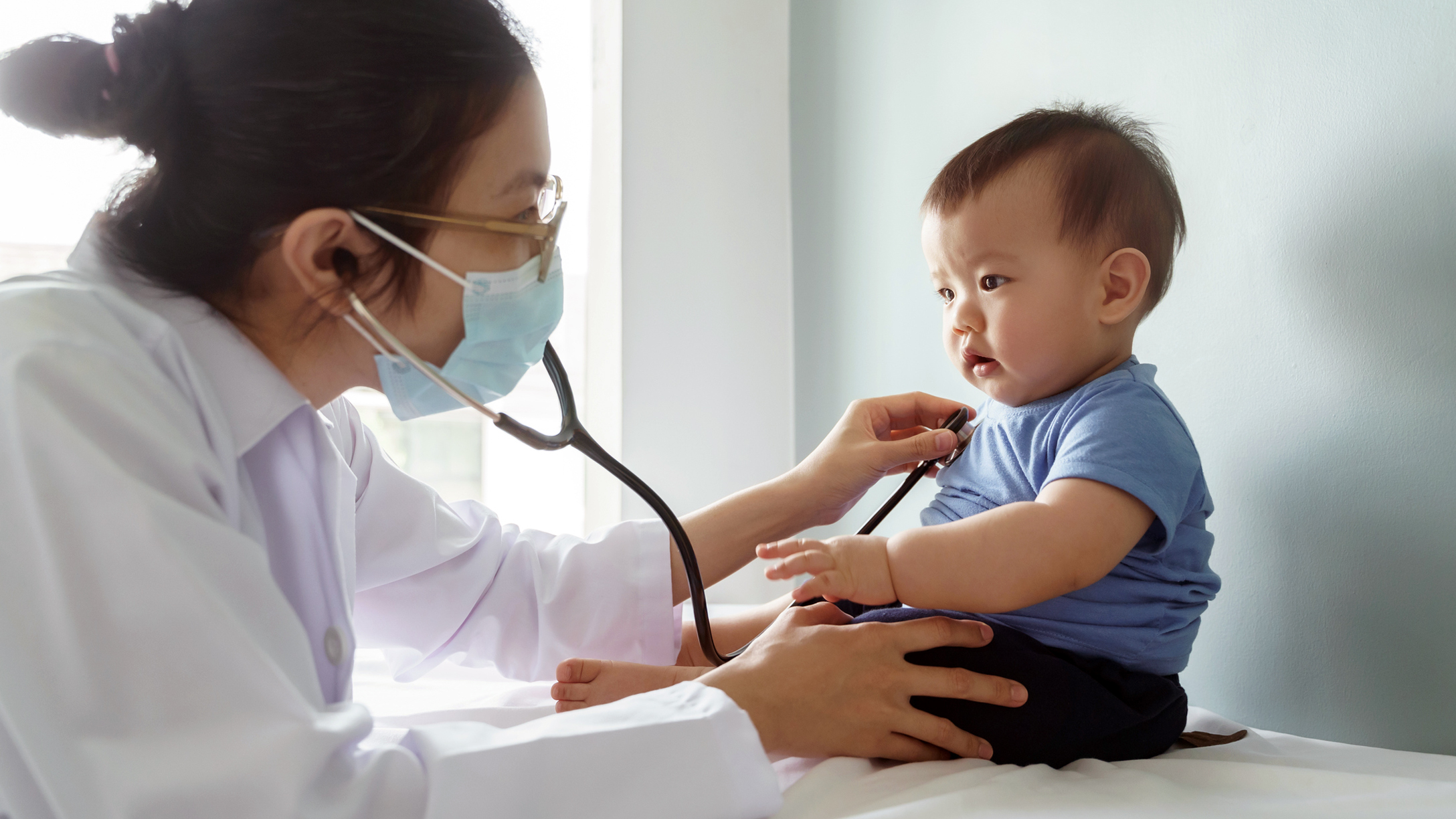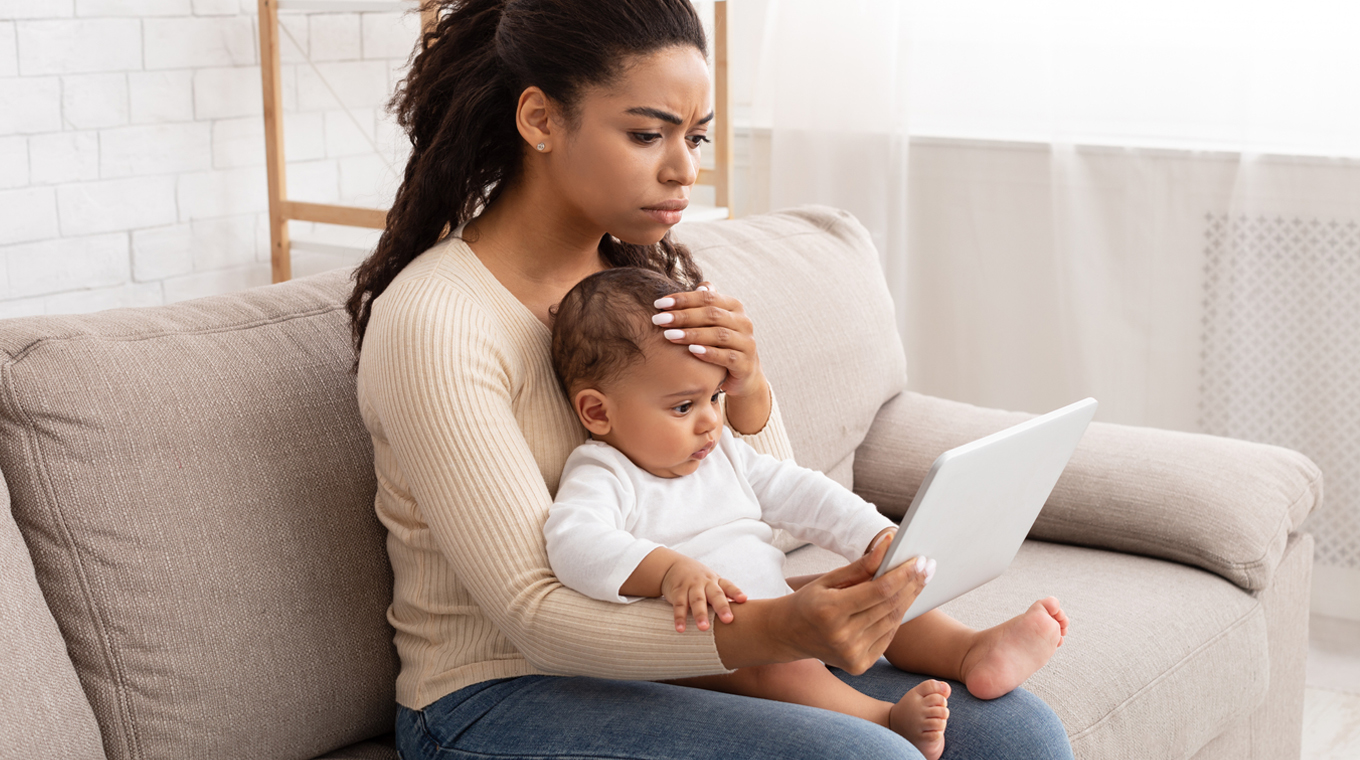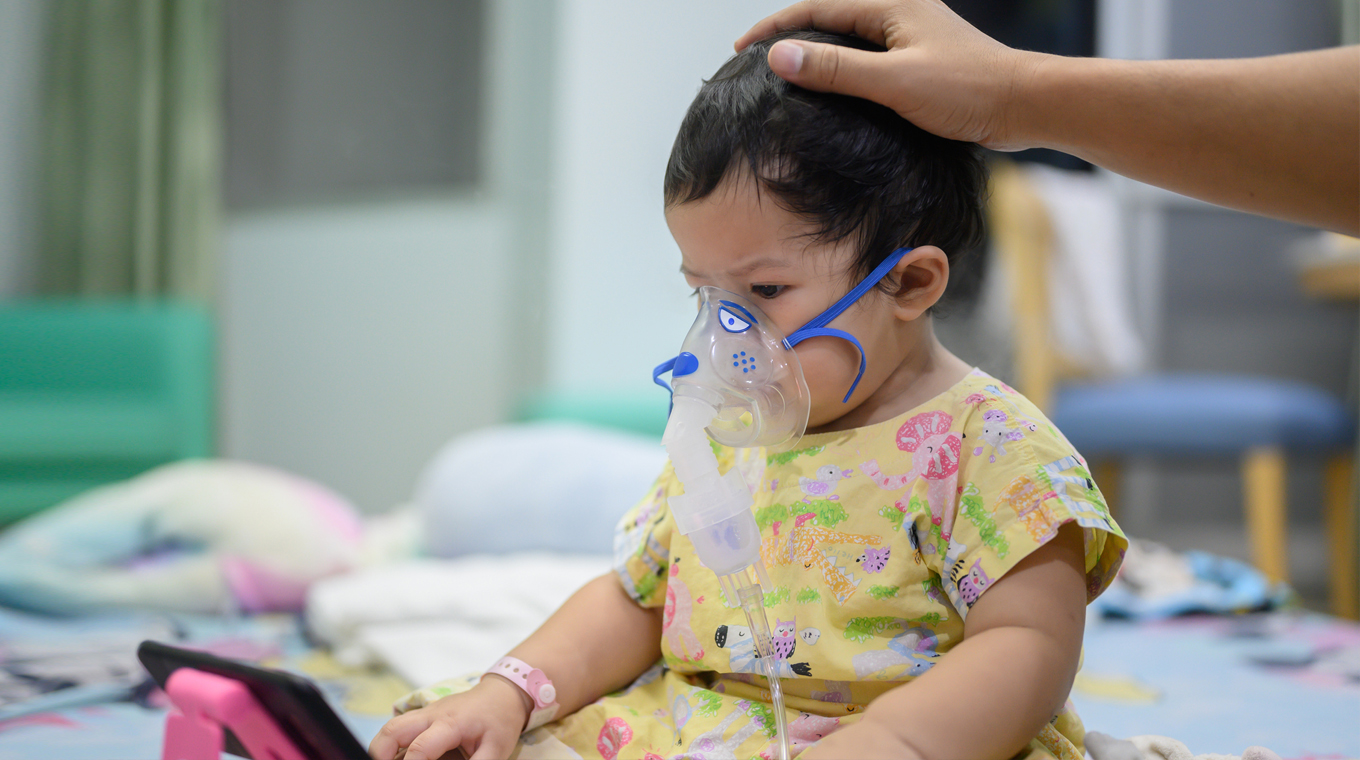
IN THIS ARTICLE
With the seasons changing, sniffling noses are on the rise, and it's the time of year when doctor’s offices are visited in hopes that nothing more than a common cold is disrupting your children’s playtime. But with viruses like RSV on the rise, moms are on alert.
What is RSV? Respiratory syncytial virus is a common virus that most babies age 2 and under will have. Similar to the flu, it tends to occur during the colder weather months when people are more often indoors and viruses are more easily passed. The mild version of the virus displays like a cold, and so in some cases, hospitalization is not necessary.
But the respiratory virus is not one to take lightly. With California reporting the first death of child under 5 due to the virus, there is a need for concern. RSV is a precursor to bronchitis and pneumonia, and it's important to learn more about this spreading virus.
To sort out the details of RSV, let’s see how exactly the virus is caused, at what age is it dangerous, and who is susceptible to it.
What causes RSV?

According to the Centers for Disease Control and Prevention, the symptoms of RSV are not much different from the common cold — runny or congested nose, fever, or coughing. Similar to most colds and even COVID-19, the virus is passed through bodily fluids:
- Coughing
- Sneezing
- Direct contact with an infected person
- Infected droplets on surfaces
Now that masks are not required indoors, there is a lack of protection against viruses that were once subdued during the intensive social distancing years. RSV is now on the rise earlier in the cold weather season. Since it can be easily caught through fluids from a sneeze or cough, it is strongly encouraged for parents to keep reminding their toddlers and kids about keeping their hands clean.
“Parents need to enforce hand hygiene. Make sure your children wash their hands frequently,” Ira Wardono MD told The Cedars-Sinai Newsroom. Dr. Wardono also suggested parents consider changing their child’s clothes post-school pickup. “Another suggestion is to have the children who are in school or play group change their clothes when they come home before interacting with infants because some viruses can stick to clothing as well.”
As with COVID-19, continue sharing with children the importance of covering coughs and sneezes, and keeping hands clean.
While most RSV cases do not lead to hospitalization, parents should take their child to see a doctor if they suspect that their child has something more than just a cold. If the virus is not severe, then the child will most likely take one to two weeks to recover at home.
RSV: What age is RSV dangerous, and how do I know if my child has it?

So how do you know if a case of RSV could be mild or severe? The danger intensifies depending on which area of the respiratory system is infected, according to GoodRX Health. If the upper portion of the respiratory system is infected, then the symptoms of RSV will be mild, but if the lower respiratory system is infected, then the severity of the virus increases greatly.
So, what age is RSV the most dangerous?
The CDC identifies infants under 6 months and adults over 65 years old as having the highest risk for getting the virus.
“The virus dramatically increases secretions in the airways. Older pediatric and adult patients are able to cough or sneeze out the extra secretions, but that is not the case for infants," explained Dr. Wardono. “Their muscles are not strong enough to cough up all the extra fluid. It’s almost like they are drowning in their secretion, and that’s what causes the trouble breathing.”
Infants who have caught the virus must be hospitalized and kept under medical watch while they battle RSV.
How do you know if your child has RSV?
One mother who experienced her child having RSV noticed that her son was not just suffering from a common cold. “That wasn’t normal for him because when you breathe, your ribs don’t just … I mean, you could see his whole rib cage. That’s how bad it was,” Ami Johnson told Wichita's KWCH News.
From babies to kids, there are symptoms that Cleveland Clinic says that parents can watch for:
- Babies can show a low appetite, an uninterest in stimulation activities, or breathing difficulties.
- Toddlers might display signs of common cold symptoms combined with a low appetite, disinterest in play time, difficulty swallowing, and breathing difficulties.
- Kids will also show cold or flu like symptoms along with feeling tired.
In the end, if any child experiences wheezing or difficulty breathing, they must be seen by a doctor immediately.
Is RSV contagious to adults?

Adults can catch RSV. For a healthy adult, the virus will most likely resemble a common cold or even a flu-like virus. Adults can recover at home, and the symptoms can last for about one to two weeks.
But for those adults who are 65 years and older or adults who have chronic medical conditions and/or weakened immune systems, the virus can be harmful and can sometimes lead to a lung infection or pneumonia.
The CDC warns that in adults, RSV can sometimes exacerbate serious conditions such as:
- Asthma
- Chronic obstructive pulmonary disease (COPD)
- Congestive heart failure
If any adult experiences difficulty breathing, then they must seek emergency medical attention immediately.




